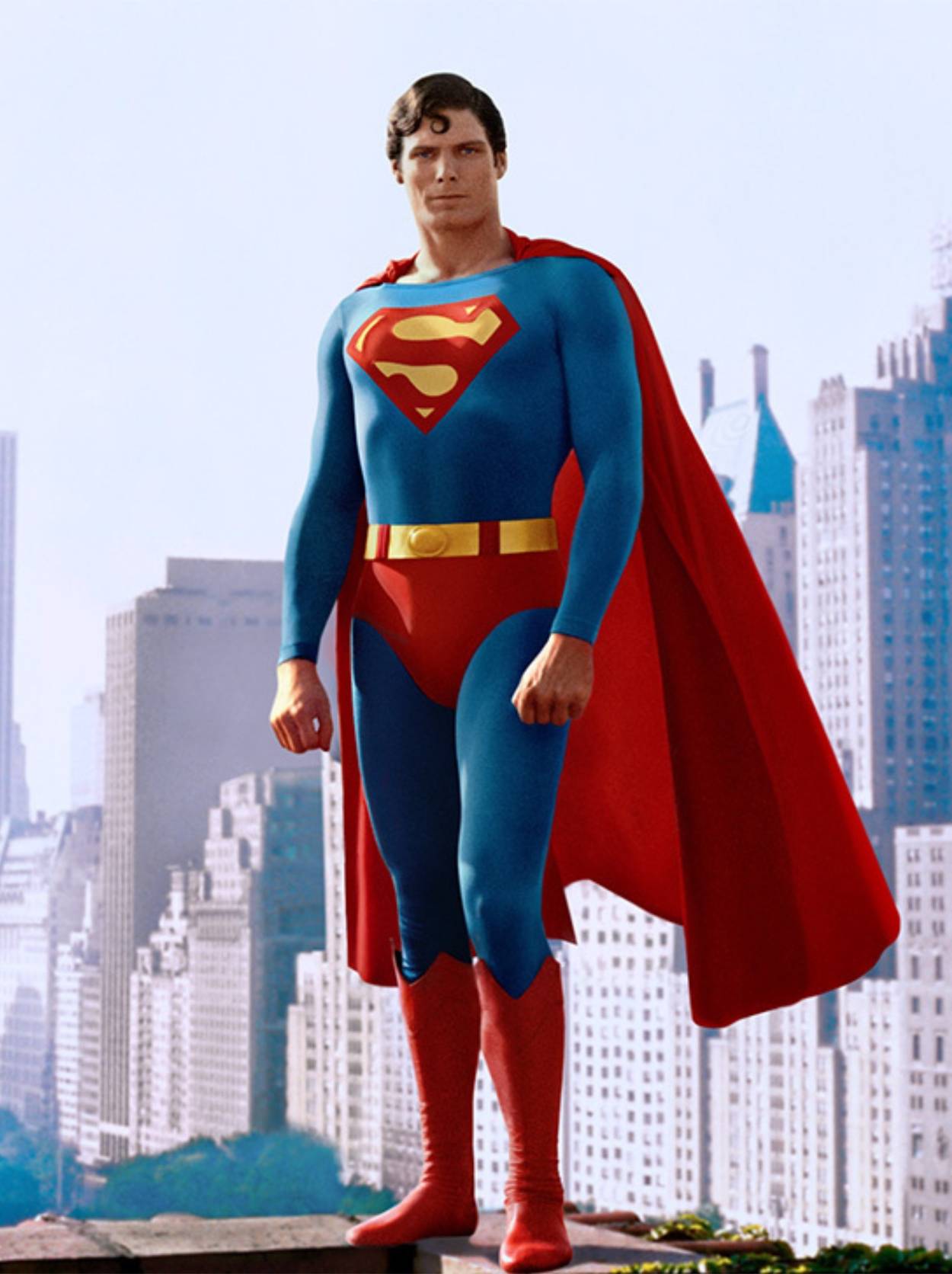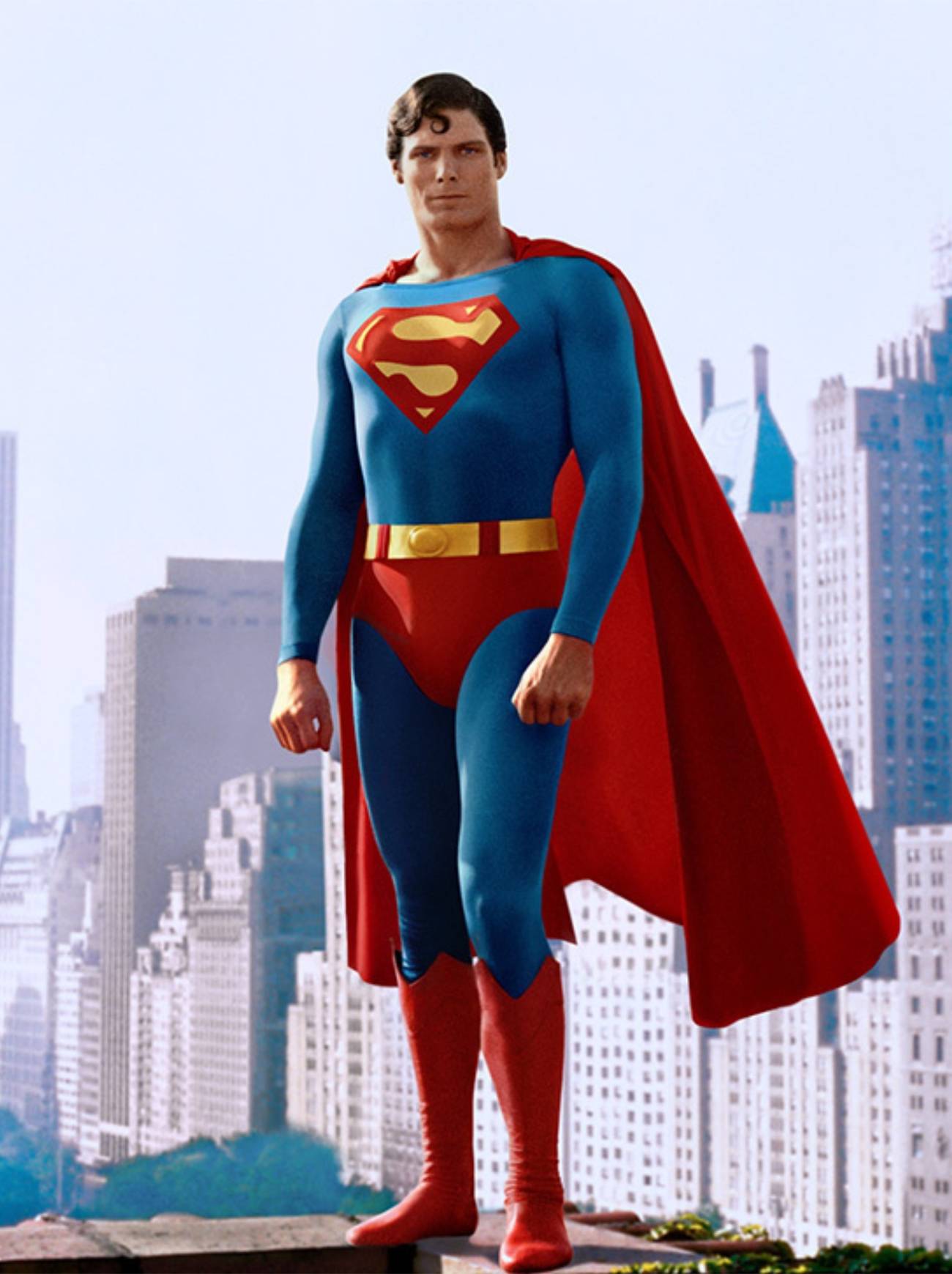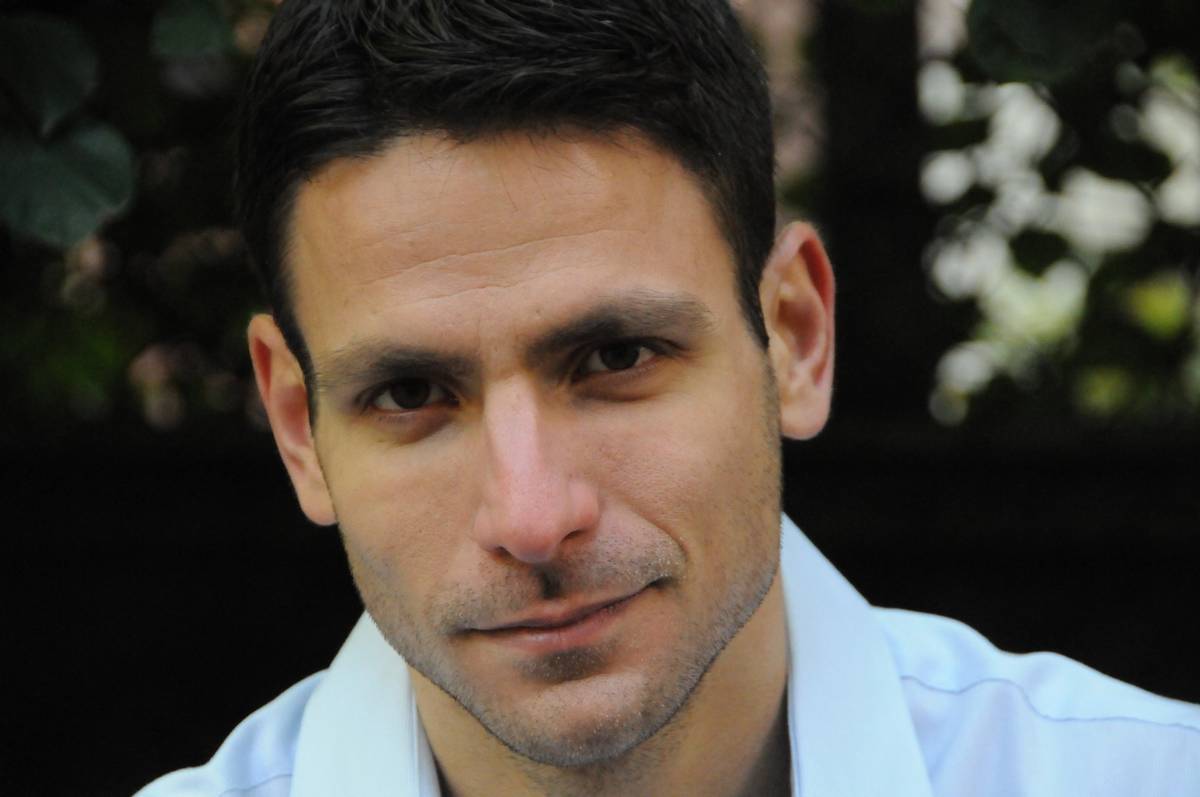The Mensch of Steel
‘Is Superman Circumcised?’ looks into the superhero’s Jewish identity




Next Monday is Shavuot, but it’s also another holiday: Miracle Monday. In the world of Superman, this holiday occurs annually on the third Monday of May, and is celebrated in the far future. This is something any DC Comics fan knows, but what Roy Schwartz, author of new book Is Superman Circumcised? The Complete Jewish History of the World’s Greatest Hero, can teach us is that Miracle Monday is actually based on a Jewish holiday—not Shavuot, but Passover.
“Miracle Monday has appeared and been mentioned in Superman comics and novels since 1975, created by Jewish writer Elliot S. Maggin,” Schwartz told me. “It’s a spring holiday commemorating freedom and deliverance by Superman, beginning with a conquering alien who ‘enslaved a nation on his native world.’ The holiday tradition involves a family dinner clearly modeled after the Seder, referred to as ‘a night of the year that is different from all other nights.’ Miracle Monday blessings include familiar phrases like ‘We celebrate today because thousands of years ago, Superman …taught us to live as a free people!’ and ‘Let all who are hungry come and eat!’ Verbatim from kol dichfin! Each member of the family also symbolically puts a portion of their food onto an empty plate reserved for Superman upon his return, the same as the glass of wine for Elijah.”
Is Superman Circumcised? was published today by McFarland Publishing, whose website explains the superhero’s Jewish connections: “Introduced in June 1938, the Man of Steel was created by two Jewish teens, Jerry Siegel and Joe Shuster. They based their hero’s origin story on Moses, his strength on Samson, his mission on the golem, and his nebbish secret identity on themselves. They made him a refugee fleeing catastrophe on the eve of World War II and sent him to tear Nazi tanks apart nearly two years before the U.S. joined the war. In the following decades, Superman’s mostly Jewish writers, artists, and editors continued to borrow Jewish motifs for their stories, basing Krypton’s past on Genesis and Exodus, its society on Jewish culture and the trial of Lex Luthor on Adolf Eichmann.”
Schwartz isn’t the first to discuss Superman’s Judaism, but he claims the focus has been almost exclusively on his Depression and WWII years and largely on the superficial parallels. He believes there’s a whole lot more to it.
Born and raised in Tel Aviv, Schwartz learned English reading comic books. Moving to New York to attend college, he spent most of his time as an English major trying to convince his professors that superheroes are worthy of critical examination. His senior thesis was called “Identity Crisis: Superman as a Christ Figure.” He was especially interested in Superman, being the archetype from which all other superheroes derive, and felt a special kinship with the character; he, too, was an immigrant, and shared his alienation, loneliness, and sense of mission. It then finally struck Schwartz: Of course Superman isn’t a Christ figure. He’s Jewish. Consequently, he dedicated his graduate thesis to Superman’s Judaism. It won second place in the NYU annual thesis competition, and started him on a six-year-long journey of additional research and writing until he completed this book.
Schwartz concluded that Superman is widely perceived as a Jesus metaphor not due to the comic books, but rather to his depiction in the movies. In the comic books he is much more Jewish, which Schwartz perceives as “a projection of his creators’ innermost desires, a torchbearer of Jewish tradition, and a conduit of the Jewish community to the wider world.” Schwartz told me: “By recognizing Superman as not just a Jewish creation but a Jewish character, he can be appreciated in a new light. And his original comics become part of the canon of Jewish American literature, earning their rightful place on the shelf next to Philip Roth and Saul Bellow. The ultimate all-American icon turns out to be an ethnic creation—and what’s more American than that?”
Comic book superheroes were created in the Jewish ghetto of the Lower East Side and the Bronx in the 1930s and ‘40s by a small group of young Eastern European Jews. “The economic hardship of the Great Depression, the rising threat of antisemitism at home and abroad and the Jewish tradition of storytelling all converged to create comic books, the bastard medium of literature and art, and the superhero genre, the pulp progeny of biblical heroes,” Schwartz writes.

Jerry Siegel and Joe Shuster, the Jewish teenagers who conceived Superman, borrowed ideas from the Jewish tradition of heroic stories about men and women given special abilities to defend the helpless, from biblical to rabbinical. It’s safe to assume they grew up on Hollywood silent movies like The Ten Commandments, Ben-Hur, The King of Kings, and Noah’s Ark, and obviously were familiar with Jewish mythology and larger than life Bible stories—which luckily weren’t copyrighted.
But Siegel and Shuster never commented on Superman’s Judaism. “No, not publicly,” Schwartz confirmed. “Back in the day it would’ve been unthinkable. And it’s not clear if it was deliberate or not, and if not, if they ever came to realize it. Though it’s really hard to imagine they didn’t. They acknowledged on various occasions a number of Jewish influences, including the Nazi persecution of Jews in Europe, rising antisemitism at home, Samson and the Golem, but interestingly they didn’t discuss any of these as particularly Jewish. After Siegel passed away, his widow Joanne said in an interview for the Jewish Week that she was aware of these undertones and considered that they were perhaps subconscious.”
Whether it was deliberate or not, Schwartz recognizes Jewish allegory in Superman’s legend every step of the way: “From Krypton’s destruction echoing the biblical flood in Genesis, to his origin as a baby rocketed to safety paralleling that of Moses in Exodus, to Kryptonite symbolizing remnants of the Jewish civilization destroyed in the Holocaust.”
Like in so many legends, it’s all in the name. In his book, Schwartz quotes Rabbi Simcha Weinstein, author of Up, Up, and Oy Vey: How Jewish History, Culture and Values Shaped the Comic Book Superhero, who reminds us that Superman’s birth name is Kal-El—the suffix “El” meaning God and popular in prophet names, such as Isra-el, Samu-el, and Dani-el and angels, such as Micha-el and Gavri-el, while the “Kal” is the root of several Hebrew words meaning “with lightness,” “swiftness,” and more.
Superman’s birth name, his values and his storylines may be Jewish, but in all fairness, he doesn’t look very Jewish. “Superman may not look very Jewish, but Clark Kent sure does,” Schwartz pointed out. “The bright but timid, hunched, bespectacled, stammering, bumbling Kent is a checklist of Jewish stereotypes. He’s the schlemiel-schlemazel type, which Siegel and Shuster actually based on themselves. He was their reality. Superman is the fantasy that secretly, underneath the insecurity and neurosis, is an invulnerable, superstrong, superconfident, macho man. It’s a universal wish fulfillment, particularly appealing to youth, but it’s also a Jewish assimilation/assertion fantasy. Unlike other persecuted minorities at the time, Jews could pass for white … Ashkenazim, at least. They could change their clothes and mannerisms and fit in. Free of discrimination and the burden of tradition. And when they want to proclaim their Jewishness, all they have to do is sneak into a phone booth and pull out their tallit.”
I asked Schwartz if Superman also served as a propaganda figure for Jewish interests. “Definitely,” he said. “It’s a story about a refugee from catastrophe who arrives in America, is welcomed by all-American heartland folk, and proves to be a loyal and valuable citizen. It’s a poignant message when European Jews weren’t granted asylum and even sent back to Europe. In his comics, Superman also explicitly advocated for the rearmament of England and intervention in the war when the American public was overwhelmingly against both. He also promoted various aspects of the New Deal when Jews were really the only demographic that strongly supported it from the get-go. In doing so Superman was, effectively, a modern-day golem. If the golem is a lifeless creature made of clay and incantation, he was a fictional character made of illustration and text, and for the same purpose. In his unpublished memoir, Jerry Siegel actually acknowledges that the 1920 Golem movie was partly where he got the idea for an invulnerable, superstrong defender of the innocent.”
Almost all superheroes created in the 1930s through the 1960s—the golden age and silver age, in comic book parlance—were created by Jews. “It was a Jewish industry, started by immigrants and their children who couldn’t get a job in publishing, advertising, cartooning and other creative industries because they were Jewish,” Schwartz maintained. “Like in any art they borrowed elements from their cultural orbit, including Jewish tradition and Yiddishkeit.”
So, it only makes sense that Superman wasn’t the only Jewish superhero. “Some superheroes incorporate more Jewish themes than others, but the most blatantly Jewish—but still closeted—is Spider-Man,” Schwartz claimed. “He comes from Forest Hills, Queens. He’s a cliché of Jewish guilt and neurosis. He compulsively quips vaudeville style—or Seinfeld, if you prefer—peppers Yiddishisms like oy and references holidays like Shavuos. In the Spider-Man: Into the Spider-Verse animated film there’s even a blink-and-you’ll-miss-it moment where he steps on the glass at his wedding.”
Karen Green, curator for comics and cartoons at Columbia University, Butler Library, is familiar with Schwartz’s theory. “The ‘Is Superman Jewish?’ argument is an old one, and has been discussed extensively in fandom and in print histories, from Danny Fingeroth’s Disguised as Clark Kent, to Arie Kaplan’s From Krakow to Krypton, to Harry Brod’s Superman is Jewish? and beyond,” she said. “But what is so interesting about superheroes is how culturally malleable they are. One can also see Superman as a Christ figure: a father sending his only begotten son down to Earth to save it. Superman is a kind of tabula rasa on to which people can project whatever good qualities they value.”
Not only isn’t Superman the only Jewish superhero, he also isn’t exclusively Jewish.
“The Golden Rule can be found in one form or another in pretty much every religion and belief system, and it’s essentially what Superman stands for,” Schwartz told me. “As a character, his true superpower is his universality. He has a personality, and his story has specificity, but the fantasy is so fundamental to human experience that anyone can identify with it. And many groups in fact have, from Buddhists to the LGBTQ community. And it’s all valid. That said, Superman was created and developed in a specific cultural setting, which was Jewish. They didn’t make him overtly Jewish because they couldn’t—even if it occurred to them—but they did imbue him with rich Jewish signification. Over the years, as the comic book industry grew and opened up, writers and particularly screenwriters added Christian motifs, to the point where the general public tends to see him as a Jesus figure. Which is fine, he could do much worse for a role model. But Superman is still, and forever will be, a Jewish hero.”
But then again, so was Jesus.
Dana Kessler has written for Maariv, Haaretz, Yediot Aharonot, and other Israeli publications. She is based in Tel Aviv.